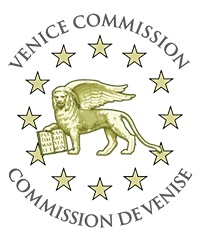
The European patent with unitary effect, also known as the unitary patent, is a European patent which benefits from unitary effect in the 17 participating member states of the European Union. Unitary effect may be requested by the proprietor within one month of grant of a European patent, replacing validation of the European patent in the individual countries concerned. Infringement and revocation proceedings are conducted before the Unified Patent Court (UPC), which decisions have a uniform effect for the unitary patent in the participating member states as a whole rather than in each country individually. The unitary patent may be only limited, transferred or revoked, or lapse, in respect of all the participating Member States. Licensing is however possible for part of the unitary territory. The unitary patent may coexist with nationally enforceable patents in the non-participating states. The unitary patent's stated aims are to make access to the patent system "easier, less costly and legally secure within the European Union" and "the creation of uniform patent protection throughout the Union".

Council Directive 93/98/EEC of 29 October 1993 harmonising the term of protection of copyright and certain related rights is a European Union directive in the field of EU copyright law, made under the internal market provisions of the Treaty of Rome. It was replaced by the 2006 Copyright Term Directive (2006/116/EC).
An industrial design right is an intellectual property right that protects the visual design of objects that are purely utilitarian. An industrial design consists of the creation of a shape, configuration or composition of pattern or color, or combination of pattern and color in three-dimensional form containing aesthetic value. An industrial design can be a two- or three-dimensional pattern used to produce a product, industrial commodity or handicraft.

The European Union Intellectual Property Office, founded in 1994, is the European Union Agency responsible for the registration of the European Union trade mark (EUTM) and the registered Community design (RCD), two unitary intellectual property rights valid across the 27 Member States of the EU. Every year, it registers an average of 135 000 EU trade marks and close to 100 000 designs. The EUIPO is also responsible for maintaining an Orphan Works Registry. Registered works have certain permitted acts under the Orphan Works Directive.

The Charter of Fundamental Rights of the European Union (CFR) enshrines certain political, social, and economic rights for European Union (EU) citizens and residents into EU law. It was drafted by the European Convention and solemnly proclaimed on 7 December 2000 by the European Parliament, the Council of Ministers and the European Commission. However, its then legal status was uncertain and it did not have full legal effect until the entry into force of the Treaty of Lisbon on 1 December 2009.

The International Union for the Protection of New Varieties of Plants or UPOV is a treaty body with headquarters in Geneva, Switzerland. Its objective is to provide an effective system for plant variety protection. It does so by defining a blueprint regulation to be implemented by its members in national law. The expression UPOV Convention also refers to one of the three instruments that relate to the union, namely the 1991 Act of the UPOV Convention, 1978 Act of the UPOV Convention and 1961 Act of the UPOV Convention with Amendments of 1972.
Plant breeders' rights (PBR), also known as plant variety rights (PVR), are rights granted in certain places to the breeder of a new variety of plant that give the breeder exclusive control over the propagating material and harvested material of a new variety for a number of years.

The Dublin Regulation is a Regulation of the European Union that determines which EU member state is responsible for the examination of an application for asylum, submitted by persons seeking international protection under the Geneva Convention and the Qualification Directive, within the European Union.

An heirloom plant, heirloom variety, heritage fruit, or heirloom vegetable is an old cultivar of a plant used for food that is grown and maintained by gardeners and farmers, particularly in isolated or ethnic minority communities of the Western world. These were commonly grown during earlier periods in human history, but are not used in modern large-scale agriculture.
In the European Economic Area, a supplementary protection certificate (SPC) is a sui generis intellectual property (IP) right that extends the duration of certain rights associated with a patent. It enters into force after expiry of a patent upon which it is based. This type of right is available for various regulated, biologically active agents, namely human or veterinary medicaments and plant protection products. Supplementary protection certificates were introduced to encourage innovation by compensating for the long time needed to obtain regulatory approval of these products.
The Plant Patent Act of 1930 is a United States federal law spurred by the work of Luther Burbank and the nursery industry. This piece of legislation made it possible to patent new varieties of plants, excluding sexual and tuber-propagated plants. Plant patents, such as PP12 'PLUM', were issued to Burbank posthumously. In supporting the legislation, Thomas Edison testified before Congress in support of the legislation and said,

The Venice Commission, officially European Commission for Democracy through Law, is an advisory body of the Council of Europe, composed of independent experts in the field of constitutional law. It was created in 1990 after the fall of the Berlin Wall, at a time of urgent need for constitutional assistance in Central and Eastern Europe.
An unaccompanied minor is a child without the presence of a legal guardian.

The European Personnel Selection Office (EPSO) is responsible for selecting staff to work for the institutions and agencies of the European Union including the European Parliament, the European Council, the Council of the European Union, the European Commission, the European Court of Justice, the Court of Auditors, the European External Action Service, the Economic and Social Committee, the Committee of the Regions and the European Ombudsman. Each institution is then able to recruit staff from among the pool of candidates selected by EPSO. On average, EPSO receives around 60,000-70,000 applications a year with around 1,500-2,000 candidates recruited by the European Union institutions.
Iran is a member of the WIPO since 2001 and has acceded to several WIPO intellectual property treaties. Iran joined the Convention for the Protection of Industrial Property in 1959. In December 2003 Iran became a party to the Madrid Agreement and the Madrid Protocol for the International Registration of Marks. In 2005 Iran joined the Lisbon Agreement for the Protection of Appellations of Origin and their International Registration, which ensures the protection of geographical names associated with products. As at February 2008 Iran had yet to accede to The Hague Agreement for the Protection of Industrial Designs.

The International Association of Horticultural Producers is a trade association dedicated to promoting horticultural producers and held the international garden / flora festivals or expositions.
Euroseeds is a non-profit association for the seed industry in the European Union and the European Economic Area. An umbrella organization of national seed associations and individual seed companies, their members represent all aspects of the European seed industry including research, plant breeding, and the production and marketing of seeds of agricultural, horticultural and ornamental plant species. It was founded in November 2000 and was granted the legal status of international non-profit International Association (AISBL) according to Belgian law in April 2002. Its headquarters are located in Brussels, Belgium.
CIOPORA is the International Community of Breeders of Asexually Reproduced Ornamental and Fruit Varieties.
The Plant Variety Protection Act of 1970 (PVPA), 7 U.S.C. §§ 2321-2582, is an intellectual property statute in the United States. The PVPA gives breeders up to 25 years of exclusive control over new, distinct, uniform, and stable sexually reproduced or tuber propagated plant varieties. A major expression of plant breeders' rights in the United States, the PVPA grants protection similar to that available through patents, but these legal schemes differ in critical respects. The PVPA should not be confused with plant patents, which are limited to asexually reproduced plants.
The European Union policy for disabled people guarantees governmental responsibility for all disabled people in all of the EU's 27 member states. This policy operates in the framework of the subsidiarity principle: if possible, one should improve at the national level, though in principle the EU will refrain from setting hefty laws in this area. Through the activities of the Council of Europe and the United Nations, the EU disability policy has since been in effect in many EU countries for years.












